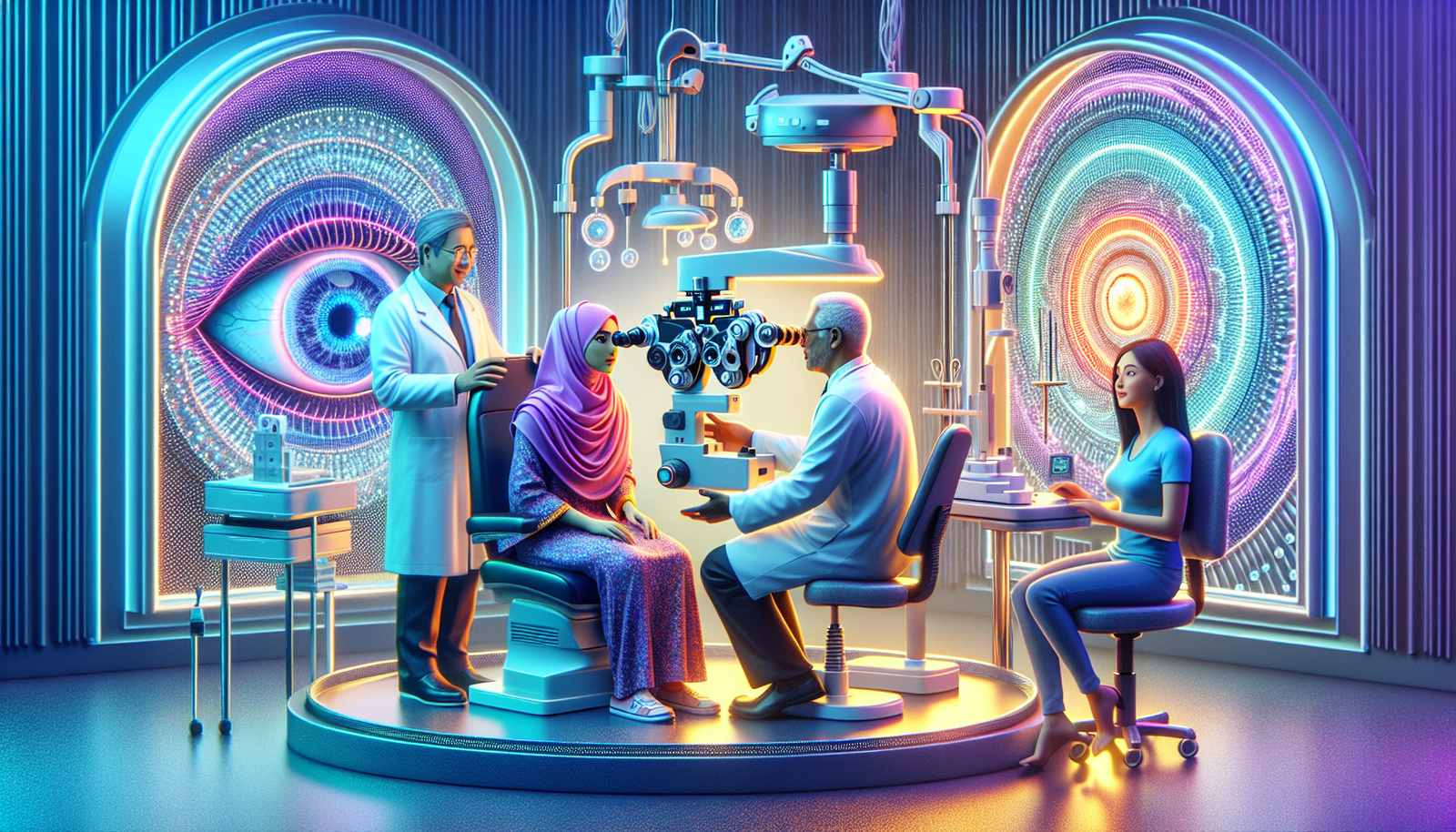Artificial intelligence is transforming ophthalmology, transforming medical practices and enhancing the accuracy of diagnoses. Technological advancements are bringing about an unprecedented revolution in the detection of eye diseases, ensuring optimal patient follow-up. Algorithms, by analyzing millions of retinal images, allow for early detection of pathologies that are often invisible, thus providing undeniable support to practitioners. This synergy between technology and human skills opens up unsuspected future perspectives for eye health.
Artificial Intelligence in Ophthalmology
The digital era is witnessing a significant transformation within medical specialties, with ophthalmology representing a sector favorable to innovation. Artificial intelligence (AI) emerges as a promising tool, capable of improving patient management while optimizing medical practices. Sophisticated algorithms, trained to analyze a multitude of medical images, pave the way for more accurate and effective diagnoses.
Early Detection of Ophthalmic Diseases
AI-based technologies offer the possibility of early screening for diseases such as age-related macular degeneration (AMD) and diabetic retinopathy. By analyzing retinal images, these systems identify anomalies that the human eye struggles to perceive. This advancement contributes to a considerable reduction in diagnostic errors, allowing practitioners to provide superior quality care.
Complementarity Between Doctors and AI
Artificial intelligence positions itself as a valuable assistant but does not replace clinical expertise in any way. The trust relationship established between a doctor and their patients remains essential. While AI is sophisticated, it cannot grasp the unique complexity of each clinical case. Thus, the validation of diagnoses by experts remains indispensable to ensure patient safety.
Supervision and Ethics
Strict regulations in force in France govern the use of AI in the health sector. Every action performed by an algorithm must be supervised by a qualified professional. This underscores the importance of ethical practice. Human supervision guarantees not only patient safety but also compliance with care standards.
Future of AI in Ophthalmology
The prospects for the evolution of artificial intelligence in the ophthalmological field are considerable. In the future, AI could assist doctors in delicate surgical procedures or carry out complex assessments of eye diseases. This evolution requires a balance between technology and human intervention, ensuring that AI complements medical expertise rather than conflicting with it.
Doctor-Machine Collaboration
A harmonious partnership between humans and machines is a major challenge for the future of eye health. The efforts made by practitioners to integrate these new technologies are accompanied by a desire to improve patient outcomes. Doctor-machine collaboration should be seen as a vector of innovation, conducive to a positive transformation of medical practice.
Frequently Asked Questions About Artificial Intelligence in Ophthalmology
How does artificial intelligence improve the screening of eye diseases?
Through advanced algorithms, AI analyzes thousands of retinal images to identify anomalies such as AMD and diabetic retinopathy, thus enabling early and accurate screening.
Can AI completely replace ophthalmologists in diagnosing diseases?
No, AI serves as a complementary tool to doctors. The final diagnosis must always be validated by a healthcare professional, thus ensuring patient safety and compliance with medical regulations.
What are the benefits of using AI for glaucoma detection?
AI allows for the identification of early signs of glaucoma before symptoms appear, providing patients with the opportunity for early treatment and better management of their eye health.
What regulations govern the use of artificial intelligence in ophthalmology in France?
Regulations in France require that all medical acts assisted by AI be supervised by a qualified professional, thus ensuring that medical acts are performed safely and ethically.
What is the future of artificial intelligence in ophthalmic surgery?
AI could play a role in assisting during complex surgical procedures, improving the accuracy of interventions while requiring constant medical supervision.
Is artificial intelligence already used in current ophthalmological practice?
Yes, AI algorithms are already integrated into clinical routine to assist in image analysis and diagnostic decision-making.
How does AI contribute to the personalization of treatments in ophthalmology?
By analyzing clinical data and images, AI helps formulate treatments tailored to the specific needs of each patient, optimizing therapeutic outcomes.
Does the use of AI in ophthalmology raise ethical challenges?
Yes, the use of AI raises ethical questions regarding patient data confidentiality, diagnostic responsibility, and the importance of maintaining the human relationship in medical care.






